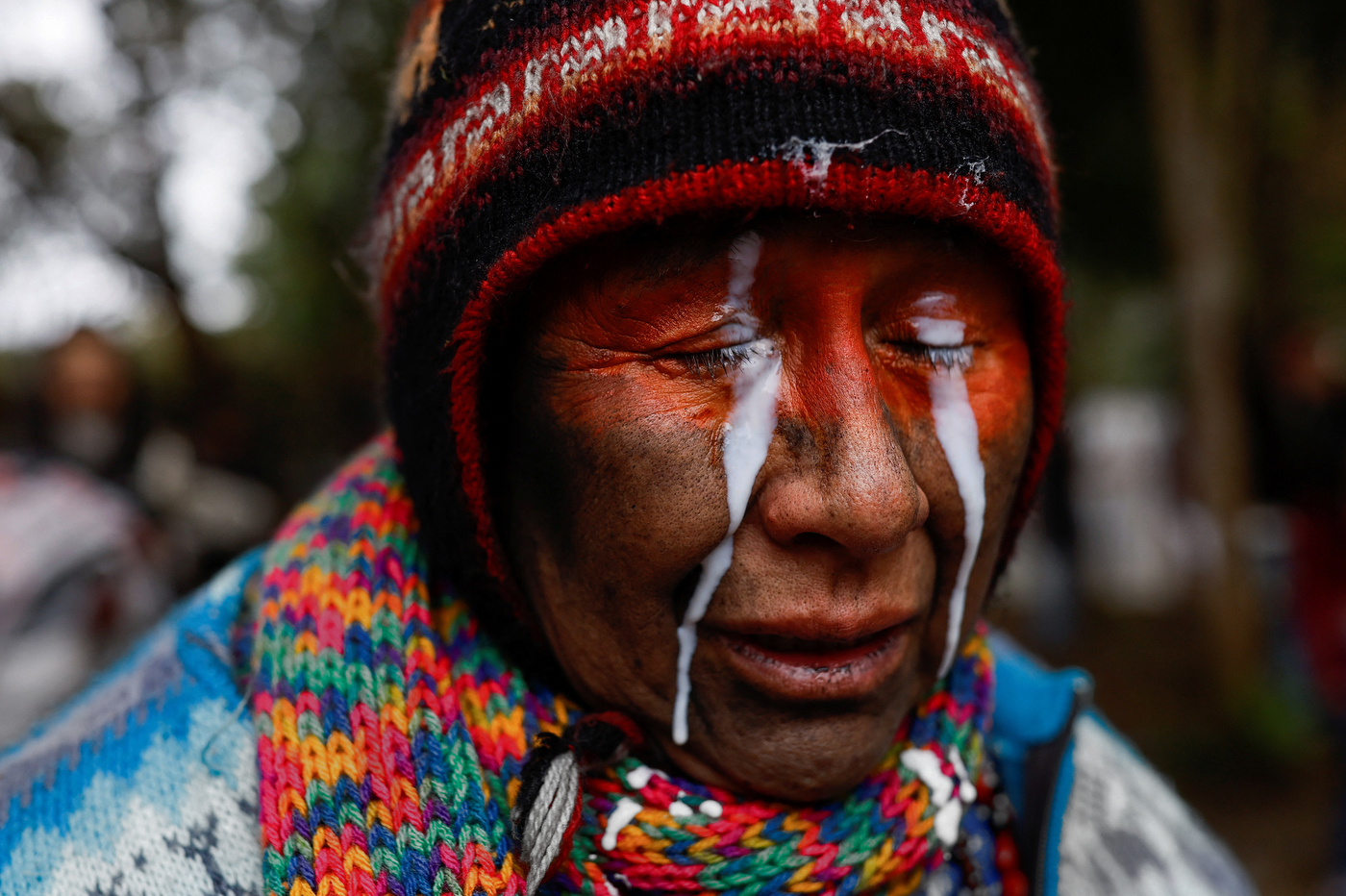Indigenous struggle
Julieta Paredes uses milk of magnesia in her eyes to ease the effects of tear gas bombs used by the military police to disperse protests against the bill known as “Marco Temporal” on the Bandeirantes highway in São Paulo, Brazil. The bill would limit the recognition of new indigenous reserves, a decision seen by environmentalists and human rights advocates as a setback after intense pressure from the agricultural lobby and which could affect hundreds of territories under evaluation. May 30, 2023
The establishment of a reserve gives indigenous communities legal protection, helping to prevent land invasions by illegal loggers and miners. In October, Brazilian President Luiz Inácio Lula da Silva vetoed the main part of the bill, a move seen as a major victory for the country’s 1.6 million indigenous people. Many of them have been fighting to defend their land rights, which are threatened by the advance of Brazil’s agricultural frontier in the Amazon region.
The number of land conflicts has increased as Brazil’s agricultural sector has grown in recent decades and become a global powerhouse. Indigenous communities across the country are claiming land that farmers have settled and developed, in some cases for decades. On December 14, Brazil’s National Congress overturned a presidential veto that had struck down the core of a bill to limit indigenous land claims, setting up a likely showdown in the Supreme Court. In a joint session of both chambers, lawmakers voted overwhelmingly to override Lula’s veto of a policy that limited claims to ancestral lands where indigenous peoples lived in 1988. About 300 different indigenous peoples live in more than 700 territories.

